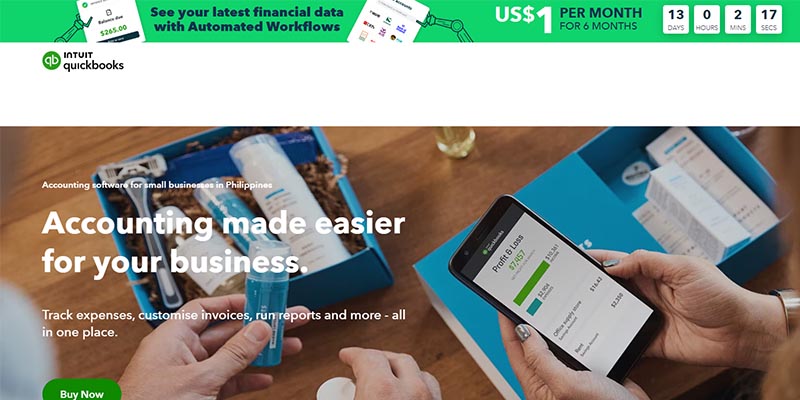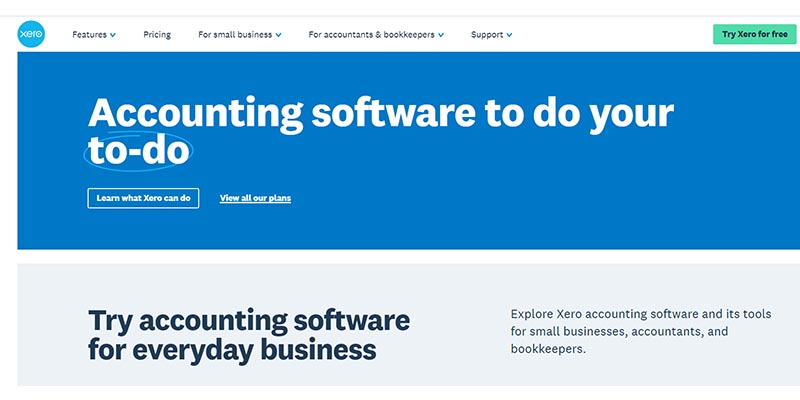Management
Where to Hire Freelance SaaS Developers

Are you looking to hire freelance SaaS developers for your project? Look no further! In this article, we will explore the best platforms and strategies to find top-notch SaaS developers who can bring your vision to life. From specialized job boards to online communities, we’ve got you covered.
1. Specialized Job Boards

If you want to tap into a pool of talented SaaS developers, specialized job boards are a great place to start. These platforms attract professionals with relevant skills and experience, increasing your chances of finding the perfect match for your project. Some popular job boards for SaaS developers include:
SaaS Jobs: This platform focuses exclusively on SaaS-related positions, making it an ideal place to find skilled developers.
Stack Overflow Jobs: Stack Overflow is not only a popular Q&A platform but also hosts a job board where developers actively search for new opportunities.
AngelList: While AngelList is primarily known for connecting startups with investors, it also features a job board where you can find talented SaaS developers.
2. Online Communities and Forums

Engaging with online communities and forums is an effective way to connect with freelance SaaS developers. These platforms allow you to interact directly with developers, ask questions, and find potential candidates for your project. Some communities and forums worth exploring include:
Hacker News: This community is known for attracting tech-savvy individuals, including SaaS developers. Participate in discussions and provide value to establish connections.
Reddit: Subreddits such as r/forhire and r/SaaS can be a goldmine for finding freelance SaaS developers. Post your project requirements and connect with interested professionals.
Quora: Quora offers a platform for knowledge-sharing, and you can find talented SaaS developers actively participating in relevant topics. Engage with these professionals to build relationships.
3. Freelance Platforms

Freelance platforms provide a convenient way to hire SaaS developers from all around the world. These platforms often have robust vetting processes to ensure the quality of their freelancers. Here are some popular freelance platforms to consider:
Upwork: Upwork is one of the largest freelance platforms, offering a wide range of SaaS developers with various skill sets and experience levels.
Toptal: Toptal is known for its rigorous screening process, guaranteeing access to top-tier SaaS developers. It’s an excellent choice for complex projects.
Conclusion
Fiverr: Fiverr is popular for its affordability and quick project turnaround. It’s a great option if you have a smaller budget or need a developer for a shorter-term project.
When it comes to hiring freelance SaaS developers, exploring specialized job boards, engaging with online communities, and utilizing freelance platforms can significantly increase your chances of finding the perfect fit for your project. Remember to clearly define your requirements and thoroughly assess candidates to ensure a successful partnership. Start your search today and bring your SaaS project to life!
Management
5 Bookkeeping Software for Small Businesses

1. QuickBooks Online

QuickBooks Online is arguably the most well-known bookkeeping software for small businesses. It offers a user-friendly interface, making it ideal for business owners who may not have an extensive accounting background. QuickBooks Online enables you to track income and expenses, create and send invoices, manage bills, and generate essential financial reports. With its cloud-based platform, you can access your financial data from anywhere, making collaboration with your accountant a breeze.
2. FreshBooks
FreshBooks is designed with simplicity in mind, making it an excellent choice for small business owners who want a straightforward bookkeeping solution. It offers time-tracking, invoicing, expense-tracking, and basic reporting features. FreshBooks excels at creating professional-looking invoices that can be customized to match your brand. With its mobile app, you can manage your finances on the go, making it convenient for busy entrepreneurs.
3. Xero

Xero is another cloud-based accounting software that has gained popularity among small business owners. It boasts a range of features, including bank reconciliation, expense tracking, and customizable invoices. Xero’s intuitive dashboard provides a real-time overview of your financial status, helping you make informed decisions. Additionally, it integrates seamlessly with over 800 third-party apps, allowing you to expand its functionality to suit your specific needs.
4. Wave Accounting
If you’re a small business owner on a tight budget, Wave Accounting may be the perfect solution for you. Wave offers a suite of accounting and bookkeeping tools entirely free of charge. It includes features like income and expense tracking, invoicing, and even payroll for a small fee. Although it may not have as many features as some of the paid options, it is a reliable choice for businesses looking to keep costs down.
5. Zoho Books
Zoho Books is part of the broader Zoho suite of business software and offers comprehensive bookkeeping tools for small businesses. It covers all the essentials, including invoicing, expense tracking, bank reconciliation, and financial reporting. Zoho Books also integrates seamlessly with other Zoho products, making it an attractive option for businesses looking for an all-in-one solution. And if you are looking for a tool to handle your human resources concerns, check out Zoho People, which is one of the best HR Saas companies today
Conclusion
When choosing bookkeeping software for your small business, consider factors such as your specific needs, budget, and ease of use. It’s also important to think about scalability, as your business may grow and require more advanced features over time. Whichever software you choose, remember that accurate bookkeeping is a vital aspect of managing your finances and ensuring the long-term success of your small business. By leveraging these five bookkeeping software options, you can simplify your financial processes and focus more on growing your business.
Management
The Top 10 HR SaaS Companies Redefining HR in 2023

As the world continues to embrace digital transformation, Human Resources (HR) departments are no exception. The advent of HR Software as a Service (SaaS) companies has revolutionized the HR landscape, providing scalable, user-friendly, and cost-effective solutions for managing human capital. In this blog, we’ll take a closer look at the top 10 HR SaaS companies that are leading the charge in 2023.
ZenHR

ZenHR is an all-in-one HR management platform that caters to businesses of all sizes. With features such as applicant tracking, time and attendance, performance management, and payroll processing, ZenHR streamlines HR processes, allowing organizations to focus on strategic workforce management.
BambooHR
BambooHR has earned a stellar reputation for its intuitive interface and robust features. Offering applicant tracking, employee onboarding, performance management, and employee self-service, BambooHR empowers HR teams to improve employee experiences and make data-driven decisions.
Gusto
Gusto primarily focuses on payroll and benefits administration. With automated tax filing, time tracking, and integrated HR solutions, Gusto takes the burden off HR professionals, ensuring compliance and accuracy in payroll management.
Namely

Namely is an HR platform that emphasizes a personalized employee experience. Along with core HR functions, Namely provides tools for engagement surveys, performance reviews, and employee recognition, fostering a positive work environment.
ADP

ADP, a veteran in the HR industry, continues to innovate with its cloud-based HR solutions. Serving businesses of all sizes, ADP offers comprehensive HR, payroll, talent management, and benefits administration services.
Workday
Workday is one of the HR SaaS companies known for its enterprise-level HR and finance software. With a focus on analytics, Workday helps organizations gain valuable insights into their workforce, enabling data-driven decision-making.
Paylocity
Paylocity combines HR and payroll capabilities with powerful reporting and analytics tools. Their mobile app ensures that employees can access essential HR information on the go, enhancing employee engagement and productivity.
Zoho People

Zoho People caters to small and medium-sized businesses with its cost-effective HR solution. It offers various features, including applicant tracking, time tracking, leave management, and performance appraisal, simplifying HR processes for growing companies.
Paycom
Paycom is a cloud-based HR platform that offers end-to-end HR solutions, from recruitment to retirement. With a robust suite of features, including talent acquisition, employee self-service, and learning management, Paycom provides a comprehensive HR experience.
Rippling
Rippling is an HR platform that extends beyond traditional HR functions to encompass IT and employee management. Its unified platform handles onboarding, payroll, benefits, and device provisioning, saving time and resources for HR teams.
Conclusion
The HR SaaS industry has undoubtedly transformed how businesses approach human capital management. These top 10 HR SaaS companies in 2023 are at the forefront of this transformation, empowering organizations to optimize their HR processes, enhance employee experiences, and drive overall business growth. As technology continues to evolve, it is evident that these companies will keep pushing the boundaries of innovation in the HR space, making it an exciting time for HR professionals and businesses alike.
Explore SaaS Reviews for more SaaS industry reviews and updates.
Cloud
What is HR SaaS and its Impact on Modern Businesses

In the rapidly evolving landscape of business and technology, companies are constantly seeking ways to streamline their operations and enhance efficiency. Human Resource (HR) management, being a crucial aspect of any organization, has witnessed significant advancements over the years. One such breakthrough is the advent of HR Software as a Service (SaaS), a game-changer that has revolutionized how HR departments operate. In this article, we will delve into the world of HR SaaS, exploring its features, benefits, and the impact it has on modern businesses.
What is HR SaaS?

HR SaaS, also known as HR Software as a Service or Cloud HR, refers to cloud-based human resource management solutions provided by third-party vendors. Unlike traditional on-premise HR software, HR SaaS operates on a subscription model, allowing companies to access and use the software over the Internet. The HR software is hosted and maintained by the SaaS provider, eliminating the need for businesses to invest in costly infrastructure or IT support. This model has democratized HR technology, making it accessible to organizations of all sizes, from startups to large enterprises.
Key Features of HR SaaS
Centralized HR Database: HR SaaS provides a centralized database for all employee information, including personal details, attendance records, performance evaluations, and more. This centralized approach ensures data accuracy, reduces redundancy, and facilitates easy access for authorized personnel.
Employee Self-Service (ESS): ESS is a fundamental feature of HR SaaS that empowers employees to manage their own HR-related tasks. From requesting time off and updating personal information to accessing pay stubs and performance feedback, employees gain autonomy, reducing the administrative burden on HR professionals.
Recruitment and Onboarding: HR SaaS streamlines the recruitment process by automating job postings, candidate screening, and applicant tracking. Additionally, it facilitates seamless onboarding, ensuring new hires have a smooth transition into the organization.
Performance Management: SaaS-based HR platforms offer tools to facilitate performance evaluations, goal setting, and feedback management. These features help drive employee engagement, identify areas for improvement, and align individual goals with organizational objectives.

Learning and Development: HR SaaS often includes learning management systems (LMS) that enable companies to create and deliver training programs to employees. This fosters continuous learning and skill development, promoting a culture of growth within the organization.
Time and Attendance Tracking: With automated time and attendance tracking, HR SaaS minimizes errors in payroll processing and ensures compliance with labor regulations. It can also integrate with biometric or card-based systems for added accuracy.
Analytics and Reporting: HR SaaS provides comprehensive data analytics and reporting functionalities. HR professionals can extract insights from the data to make informed decisions, identify trends, and optimize HR strategies.
Benefits of HR SaaS

Cost-Efficiency: HR SaaS eliminates the need for significant upfront investments in hardware and software licenses. Instead, companies pay a subscription fee based on their usage, making it a cost-effective solution, especially for small and medium-sized businesses.
Scalability: As businesses grow, their HR requirements evolve. HR SaaS platforms are designed to be scalable, accommodating the changing needs of the organization without significant disruptions.
Accessibility and Mobility: With HR SaaS accessible through web browsers and mobile applications, HR professionals and employees can securely access data and perform tasks from anywhere, promoting remote work and mobility.
Security and Compliance: Reputable HR SaaS providers invest heavily in security measures to protect sensitive employee data. Data encryption, regular backups, and compliance with data protection regulations ensure the safety of critical information.
Time-Saving Automation: HR SaaS automates repetitive tasks, such as payroll processing and leave management, allowing HR professionals to focus on more strategic initiatives and employee engagement.
Integration Capabilities: Many HR SaaS platforms offer integration with other business systems, such as accounting software and CRM platforms, creating a seamless flow of information across departments.
Impact on Modern Businesses

Adopting HR SaaS has significantly transformed the HR landscape for businesses across industries. Some of the key impacts include:
1. Enhanced Employee Experience
With self-service options and user-friendly interfaces, HR SaaS empowers employees to take charge of their HR-related tasks, resulting in improved employee satisfaction and engagement.
2. Data-Driven Decision Making
HR SaaS’s robust analytics and reporting features enable HR professionals to make data-driven decisions that align with the organization’s strategic goals.
3. Agility and Adaptability
In the face of changing market dynamics, HR SaaS equips businesses with the agility to respond quickly to HR demands and adapt their strategies accordingly.
4. Global Workforce Management
For companies with a global presence, HR SaaS provides the tools to manage a diverse workforce across different geographical locations, ensuring consistent HR practices and compliance with regional regulations.
5. Competitive Advantage
Businesses that embrace HR SaaS gain a competitive edge by leveraging cutting-edge technology to optimize HR processes, attract top talent, and retain valuable employees.
Challenges and Considerations
While HR SaaS offers numerous advantages, businesses should consider some challenges:
Data Security: As with any cloud-based solution, data security is a critical consideration. Companies must choose reputable HR SaaS providers with robust security measures.
Integration Complexity: Integrating HR SaaS with existing systems may require careful planning and expert guidance to ensure a smooth transition and data synchronization.
Vendor Selection: It is crucial to research and select the right HR SaaS provider that aligns with the organization’s specific needs and long-term goals.
Conclusion
HR SaaS has revolutionized how businesses manage their human resources, providing cost-efficient, scalable, and accessible solutions for organizations of all sizes. The transformational impact on employee experience, decision-making, and agility has made HR SaaS a vital tool for modern businesses seeking to optimize their HR processes and gain a competitive advantage. By embracing HR SaaS, companies can unlock the potential of their workforce and elevate their overall organizational performance in today’s dynamic business landscape.
-

 Cloud3 years ago
Cloud3 years ago9 Examples of Vertical SaaS Companies That Are Making An Impact
-

 Cloud3 years ago
Cloud3 years ago3 Tips for Choosing the Best Cloud Computing Software for Your Small Business
-

 Cloud3 years ago
Cloud3 years agoTop 10 Software as a Service (SaaS) Companies
-

 Management2 years ago
Management2 years ago5 Bookkeeping Software for Small Businesses
-

 A.I.2 years ago
A.I.2 years ago10 Best AI Personal Assistants to Answer Anything
-

 Cloud3 years ago
Cloud3 years agoThe 10 Popular IaaS Examples
-

 Management2 years ago
Management2 years agoThe Top 10 HR SaaS Companies Redefining HR in 2023
-

 Management3 years ago
Management3 years agoThe Expanding Landscape of Data Science Jobs
